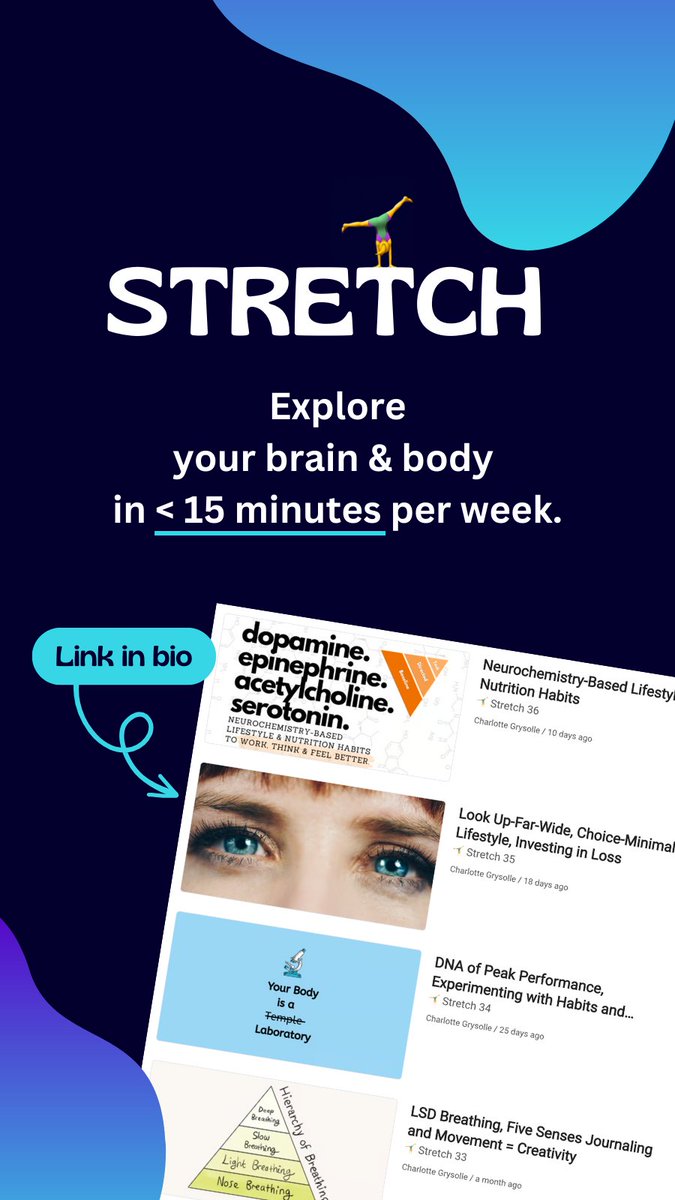
Finally tap into your full nervous system potential → Practical breathing & body tools for sustained performance & self-trust (no fluff, all science backed!)
3 subscribers
How to get URL link on X (Twitter) App





 Our eyes are fundamentally the most powerful driver of what we think, feel, and do, because they set the basic level of alertness and focus.
Our eyes are fundamentally the most powerful driver of what we think, feel, and do, because they set the basic level of alertness and focus.
 • You can outsource 90% of mentorship to books and other materials. 200-500 books equals one good mentor.
• You can outsource 90% of mentorship to books and other materials. 200-500 books equals one good mentor.
 Ultradian rhythms are natural cycles of approx. 90 minutes that exist in all of us.
Ultradian rhythms are natural cycles of approx. 90 minutes that exist in all of us.
https://twitter.com/chargrysolle/status/1554873029502455808?s=20&t=Meu4rfamZi0u6PZHI5IHbA
https://twitter.com/chargrysolle/status/1521600504651935744

 We all have an internal master clock called the circadian rhythm.
We all have an internal master clock called the circadian rhythm.
 1/To feel more focused:
1/To feel more focused: